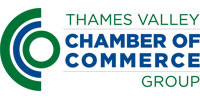(last updated July 2019)
What has been happening in the pony trekking sector
A favourable economic climate until the closing years of the 2000s encouraged people to ride and to buy a horse or pony and the equestrian industry experienced significant growth, with the number of horses and ponies increasing considerably. Growth slowed considerably during the economic downturn during the late 2000s/early 2010. People cut back on the amount they spent on leisure activities like riding and this affected demand for businesses like riding and trekking centres.
Nevertheless, research by the British Equestrian Trade Association (BETA) showed that there were still around 2.7 million riders in the UK in 2015 (this is the most up-to-date figure available). Although this is a fall from the estimated 3.5 million riders in 2011, it's still many more than the number of horses in the UK - estimated at just under one million). So many people who want to ride regularly have to go to a riding school or trekking centre.
2013 saw the start of an upturn in the economy, which strengthened in 2014 and the first half of 2015. The economic recovery slowed again, however, in the second half of 2015 and into 2016. The uncertainty following the Brexit vote in June 2016 led to the economy continuing to perform poorly throughout 2016 and 2017. Little change is expected in 2018 and 2019. With increasing inflation due to the fall in the value of the pound and the continuing uncertainty surrounding the Brexit negotiations, consumers have been tightening their belts. With less money in their pockets and declining levels of confidence in the economy, consumer spending on non-essentials has suffered.
When planning your trekking centre, there are a number of things which you'll need to take into account:
- the sector is competitive because a lot of farmers have diversified into equestrian activities. Trekking centres also face competition from riding schools
- consumers are increasingly discerning and will not be prepared to patronise an establishment which does not offer a first class service from well-maintained premises with healthy and well-schooled mounts
- any unforeseen events which would close off access to bridleways and open countryside would severely disrupt business (for example, the 2001 outbreak of foot and mouth disease which effectively 'closed' much of the countryside)
- riding does seem to have become slightly less popular recently, although the industry is trying hard to encourage it with initiatives like Ride Out Week
- you may need to think hard about alternative sources of income during the winter months
- due to the high level of imported feed, costs have increased since the fall in the value of the pound following the Brexit vote
Regulations made under the Animal Welfare Act consolidated and updated animal welfare requirements. The licensing requirement under the Regulations replaced the requirement to obtain a licence under the Riding Establishments Act 1964, although any unexpired licences granted under earlier Riding Establishments Acts continue in force until they expire.
Keep up to date with developments
The British Horse Society (BHS) is the governing body for equestrian activities and is committed to raising standards of horse care and horse business management. The Society produces a number of helpful publications, including The BHS Complete Manual of Stable Management. They also operate a BHS Approval Scheme for trekking centres which requires certain minimum standards to be met and maintained. Gaining approval indicates to prospective customers that your horses are well cared for and that your operating practices comply with BHS guidelines and this can be a valuable competitive tool. The BHS is continuing to develop its approved centre scheme with the aim of securing UKAS accreditation by April 2018 so, when the new animal activities licensing regulations are introduced, BHS approval could mean you can get a lower risk score so you can be granted a longer licence at a lower annual cost. Contact the BHS at Abbey Park, Stareton, Kenilworth CV8 2XZ, or visit their website.
The Association of British Riding Schools (ABRS) represents the interests of riding centres and is actively involved in training and in promoting high standards within the industry. Contact the ABRS for details of the guidance available at Unit 8, Bramble Hill Farm, Five Oaks Road, Slinfold, Horsham, West Sussex RH13 0RL.
The Trekking and Riding Society of Scotland (TRSS) supports equestrian tourism in Scotland and promotes high standards within the industry. Horsescotland is the national organisation for all equestrian activities in Scotland, dedicated to encouraging and supporting equestrian sport. The Wales Trekking and Riding Association supports equestrian businesses throughout Wales and inspects members to make sure high standards are maintained.
You can download the National Equine Welfare Council (NEWC) publication Equine Industry Welfare Guidelines Compendium for Horses, Ponies and Donkeys from the NEWC website. This contains detailed guidance on the minimum standards of care required to look after horses appropriately, including legal requirements.
The British Equestrian Federation (BEF) is the national governing body for horse sports in the UK.
The British Equestrian Trade Association (BETA) represents the interests of suppliers to the equestrian industry and also conducts a regular Equestrian Survey. Contact the Association at Stockeld Park, Wetherby, West Yorkshire LS22 4AW.
